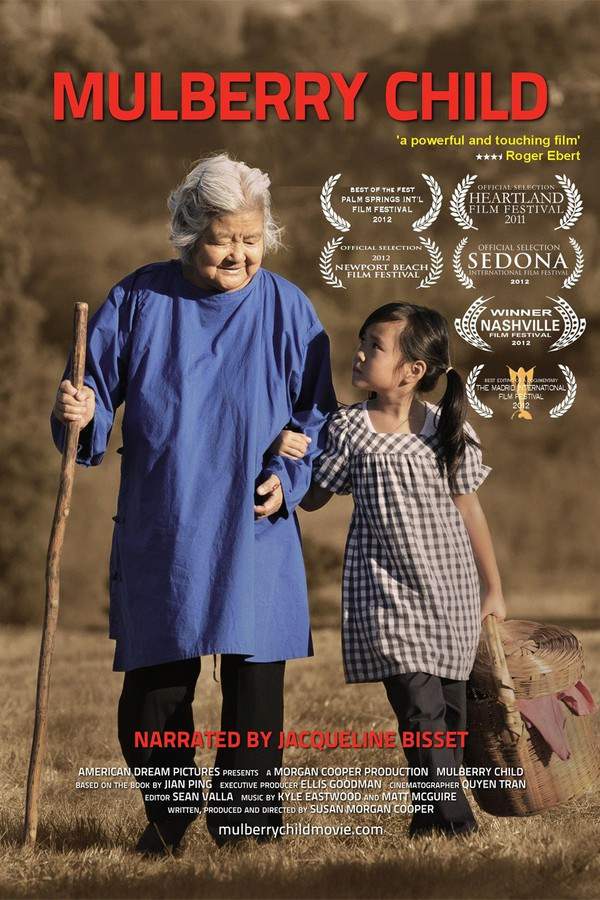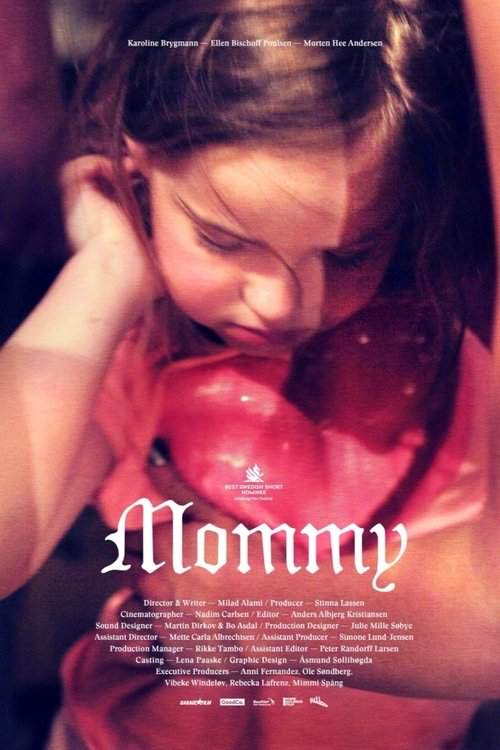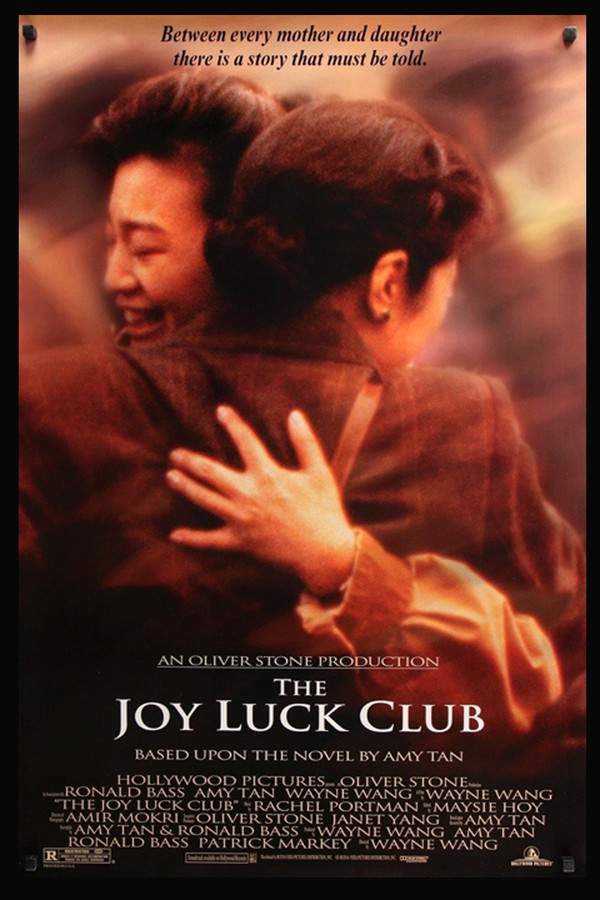
Mulberry Child 2012
Directed by

Susan Morgan Cooper
Made by

American Dream Pictures
Test your knowledge of Mulberry Child with our quiz!
Mulberry Child Plot Summary
Read the complete plot summary and ending explained for Mulberry Child (2012). From turning points to emotional moments, uncover what really happened and why it matters.
Jian Ping was born in 1960 in China, amidst a devastating famine resulting from the economic turmoil brought on by Mao Zedong’s Great Leap Forward. In this challenging period, tens of millions faced starvation, just prior to the onset of Mao’s severe and oppressive Cultural Revolution, which lasted from 1966 to 1976. The climate of fear intensified as Mao encouraged the youth to rebel, leading to rampant chaos where individuals faced persecution, humiliation, and violence from those empowered to act with impunity.
Jian was a premature and frail child, often neglected by her overwhelmed mother, who had three other children to care for. Consequently, she was raised by her grandmother, Nainai, who played a pivotal role in her survival during those harsh times. Despite the presence of care, expressions of affection were chastised under the Communist regime, making love feel unspoken and elusive.
Her parents were staunch supporters of the Party, with her mother prioritizing her allegiance to Mao above the welfare of her children. Jian’s father, having endured torture during his youth at the hands of Japanese forces, was later vindicated but became a dedicated Party member. He eventually rose to the position of Deputy Governor of Baicheng, showing resilience amid tragedy.
As societal tensions peaked, neighbors turned against one another, fostering an atmosphere rife with mistrust. Jian’s father was arrested without warning, becoming a victim of political machinations and branded a ‘Big Traitor.’ Meanwhile, her mother, also caught in the oppressive grip of the state, was coerced into writing self-incriminating statements. Demonstrating remarkable strength, she resisted demands from the Red Guards to renounce her husband and refused to let her children grow up without their father.
The situation worsened as Jian’s older siblings were sent away for “re-education” in rural areas, and she, along with Nainai, found themselves displaced in a remote and crude dwelling that offered little protection against the brutal cold. The oppressive years stretched on until 1976 when the Cultural Revolution finally subsided with Mao’s death. As an eight-year-old, Jian vividly recalls dodging insults and stones as she made her way to visit her father in prison. This instilled in her a belief in maintaining composure, hiding any fragility from those who might exploit it while trying not to burden her loved ones with her pain.
With time, as China began to heal and evolve, Jian returned to education, eventually obtaining an undergraduate degree in English before immigrating to the United States. There, she pursued and achieved two master’s degrees. Jian’s journey continued as she married and became a mother to her daughter, Lisa, who joined her in the U.S. when she was five years old. In her pursuit to establish a middle-class existence for her family, Jian felt an ironic sense of disconnection growing between her and Lisa. This prompted Jian to embark on an eight-year journey writing her memoir, Mulberry Child, a heartfelt project born out of her desire to unveil her history and share her Chinese lineage with Lisa. However, she encountered disappointment when Lisa expressed little interest in her mother’s story.
The landscape shifted when Jian Ping and Lisa returned to China for a poignant family reunion during the impactful 2008 Beijing Olympics. It was during this trip that Lisa agreed to read her mother’s manuscript. As she delved into the narrative of their family’s history, Lisa began to recognize her mother in a new light, fostering a deeper understanding and appreciation of her own heritage.
Mulberry Child Timeline
Follow the complete movie timeline of Mulberry Child (2012) with every major event in chronological order. Great for understanding complex plots and story progression.
Birth of Jian Ping
Jian Ping was born in China in 1960 amidst a devastating famine caused by Mao Zedong's Great Leap Forward. This period marked one of the most tragic times in Chinese history, with tens of millions perishing due to starvation, setting the backdrop for her early life.
Childhood Suffering
As a tiny, premature infant, Jian was often sick and seen as unwanted by her already overburdened mother. This situation led her to be cared for by her grandmother, Nainai, whose nurturing presence was crucial for her survival during these harsh early years.
Parental Loyalty to the Party
Jian's parents were fervently devoted to the Communist Party, prioritizing duty to Mao over familial ties. Her father, having survived torture during World War II, ultimately rose to become the Deputy Governor of Baicheng, representing the conflicting notions of loyalty and family loyalty.
Family Betrayal and Arrest
As societal chaos escalated under Mao's regime, Jian's family faced severe repercussions. Her father was arrested and publicly humiliated, his reputation destroyed as he was labeled a 'Big Traitor,' demonstrating the pervasive atmosphere of fear and suspicion during the Cultural Revolution.
Mother's Resistance
Jian's mother, a school administrator, was also detained, forced to write self-recriminations while enduring pressure from the Red Guards to denounce her husband. Her refusal to submit to their demands exemplified her strength and determination to protect her family.
Forced Separation
With escalating danger, Jian and her family faced brutal consequences. Her older siblings were sent away for re-education in the countryside, while Jian and her grandmother were exiled to a primitive mud hut, where they endured harsh living conditions.
Navigating Danger
At just eight years old, Jian made perilous trips to visit her father in prison. These moments were fraught with danger, as she navigated through hostility and violence directed her way, shaping her understanding of resilience and composure in the face of adversity.
End of the Cultural Revolution
The Cultural Revolution finally concluded in 1976 with the death of Mao Zedong. This significant event marked a turning point in China’s history and began to shift the narrative, allowing Jian to eventually seek education and a better life.
Education and Immigration
Following the turmoil of her childhood, Jian pursued education, earning an undergraduate degree in English. Her quest for knowledge propelled her to immigrate to the United States, where she achieved two master's degrees, illustrating her determination to build a new life.
Family Life in America
After settling in America, Jian married and had a daughter named Lisa. However, despite her efforts to provide a stable middle-class life, she began to sense a growing disconnection between herself and Lisa, highlighting the complexities of immigrant family dynamics.
Writing the Memoir
Driven by a need to reconcile her past and connect with her daughter's heritage, Jian embarked on an eight-year journey to write her memoir, 'Mulberry Child.' This work became a critical medium for revealing her experiences under Mao and bridging the gap between generations.
Journey Back to China
In a poignant family visit, Jian and Lisa returned to China during the 2008 Beijing Olympics. This trip was not just a return to their roots but also a pivotal moment for Lisa, prompting her to begin reading her mother's manuscript and reconsider her understanding of their family history.
A Shift in Perspective
As Lisa engaged with Jian's memoir, her perspective of her mother began to change. Through tracing their family's history, she started to embrace her Chinese heritage, marking a significant emotional connection between mother and daughter that had been previously strained.
Mulberry Child Characters
Explore all characters from Mulberry Child (2012). Get detailed profiles with their roles, arcs, and key relationships explained.
Jian Ping
Jian Ping is a resilient and determined woman shaped by her traumatic childhood during China's Cultural Revolution. Her experiences of loss, repression, and her eventual migration to the United States profoundly impact her character as she seeks to provide a better life for her daughter while reconciling her past.
Nainai
Nainai, Jian's grandmother, provides essential care and protection during Jian's early years. Her nurturing presence offers a sense of stability and love amidst the chaos of the era, illustrating the vital role of family support during difficult times.
Lisa
Lisa is Jian's daughter, who grapples with her identity as a Chinese-American. Throughout the film, her evolving relationship with her mother and discovery of her heritage reflect the broader themes of connection and cultural understanding.
Mulberry Child Settings
Learn where and when Mulberry Child (2012) takes place. Explore the film’s settings, era, and how they shape the narrative.
Time period
1960-1976
Set against the backdrop of the Cultural Revolution from 1966 to 1976, this era in China was defined by Mao Zedong's radical policies and a quest to enforce Communist ideology. It brought about a period of famine, widespread persecution, and severe societal disruption, deeply affecting the lives of countless families, including Jian's.
Location
China, United States
The movie primarily unfolds in China during the Cultural Revolution, a period marked by social upheaval and state terror. It later shifts to the United States, where Jian Ping strives to build a new life for herself and her daughter. These contrasting settings reflect Jian's journey from chaos and repression to the pursuit of freedom and identity.
Mulberry Child Themes
Discover the main themes in Mulberry Child (2012). Analyze the deeper meanings, emotional layers, and social commentary behind the film.
📖
Identity
The theme of identity is central to Jian Ping's narrative as she navigates her Chinese heritage and her experiences in America. Her memoir 'Mulberry Child' serves as a bridge between her past and her daughter's understanding of their family history.
👨👩👧
Family
Family dynamics play a crucial role throughout the film. Jian's relationships with her parents, particularly the struggles and sacrifices they made during the Cultural Revolution, influence her own parenting style and connection with her daughter, Lisa.
💔
Struggle
The film explores the struggles of individuals against oppressive political regimes. Jian Ping's resilience in facing personal and societal challenges showcases the fight for survival and dignity during a tumultuous period in Chinese history.

Coming soon on iOS and Android
The Plot Explained Mobile App
From blockbusters to hidden gems — dive into movie stories anytime, anywhere. Save your favorites, discover plots faster, and never miss a twist again.
Sign up to be the first to know when we launch. Your email stays private — always.
Mulberry Child Spoiler-Free Summary
Discover the spoiler-free summary of Mulberry Child (2012). Get a concise overview without any spoilers.
In a quiet American suburb, Jian Ping carries the weight of a childhood shaped by hardship and resilience, a legacy forged in a China once caught in the grip of famine and ideological turmoil. The film opens with her settled life—married, educated, and striving for a comfortable middle‑class existence—yet the borders of her new world feel both protective and isolating. The tone is intimate and contemplative, inviting viewers to sense the subtle dissonance that lingers when a past defined by survival meets the polished routine of modern domesticity.
Her relationship with her daughter, Lisa, becomes the emotional axis of the story. Lisa, raised on the soil of the United States, navigates the everyday freedoms of her generation while remaining unknowingly distant from the shadows that stretch behind her mother’s stoic demeanor. The film portrays their bond with a tender yet strained cadence, emphasizing generational gaps amplified by language, memory, and unspoken expectations. Through quiet moments—shared meals, hesitant conversations, the silent passage of time—the audience feels the pull between filial duty and personal identity.
Driven by a desire to bridge this growing chasm, Jian turns to the act of writing, embarking on a painstaking memoir that seeks to translate the fragments of her childhood into a narrative her daughter might grasp. The creative process is depicted as both a cathartic release and a fragile offering, hinting at the power of stories to mend invisible wounds. As the manuscript takes shape, the film swells with a hopeful, reflective mood, suggesting that understanding may blossom when the past is given voice.
Against the backdrop of two contrasting societies—the austere, collective memory of her homeland and the individualistic, fast‑paced rhythm of her adopted country—the story unfolds as a meditation on belonging, cultural inheritance, and the quiet courage required to let another see the depths of one’s own history. The audience is left with a sense of anticipation, wondering whether the act of remembrance will finally draw the mother and daughter into a shared, uncharted intimacy.
Can’t find your movie? Request a summary here.
Movies with Similar Twists and Themes
Uncover films that echo the narrative beats, emotional arcs, or dramatic twists of the one you're exploring. These recommendations are handpicked based on story depth, thematic resonance, and spoiler-worthy moments — perfect for fans who crave more of the same intrigue.
Featured on this page

What's After the Movie?
Not sure whether to stay after the credits? Find out!
Explore Our Movie Platform
New Movie Releases (2025)
Famous Movie Actors
Top Film Production Studios
Movie Plot Summaries & Endings
Major Movie Awards & Winners
Best Concert Films & Music Documentaries
Movie Collections and Curated Lists
© 2025 What's After the Movie. All rights reserved.









